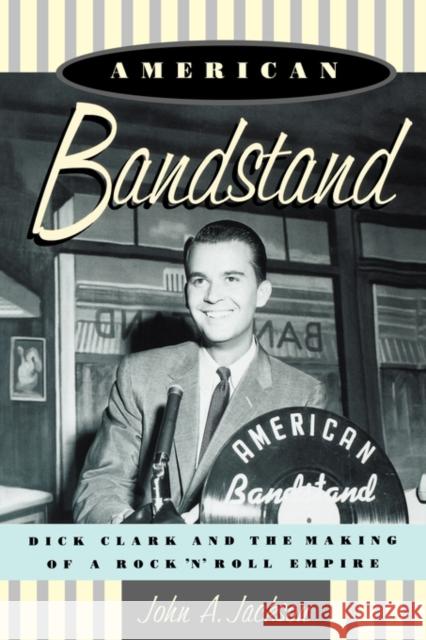American Bandstand: Dick Clark and the Making of a Rock 'n' Roll Empire » książka
American Bandstand: Dick Clark and the Making of a Rock 'n' Roll Empire
ISBN-13: 9780195130898 / Angielski / Miękka / 1999 / 368 str.
"I don't make culture, I sell it" Dick Clark once remarked. Indeed, the man who reigned as host of American Bandstand for nearly four decades may not have invented rock 'n' roll, but he sold it to the American public better than anyone before or since. Before Clark, rock 'n' roll was the step child of radio--which took to playing records as a cost-saving measure after television siphoned off radios most lucrative sponsors. But it was network television--and specifically Clarks Bandstand--that ultimately legitimized what was then viewed by most adults as vulgar, low-class music, broadcasting a sanitized vision of rock 'n' roll straight into Americas living rooms five afternoons a week.
Here is the first book to tell the full story of what happened in front of--and behind--the cameras on Dick Clark's American Bandstand, providing both a history of this landmark show and of the changing styles of rock 'n' roll over four decades. Based on extensive interviews with music business figures, recording stars, and Clark himself, and featuring dozens of rare or never before published photographs, this is a riveting and uncensored account of a show that managed to survive countless revolutions in popular music. Jackson describes Bandstands humble beginnings in Philadelphias blue collar south side, the sex scandal that scuttled the first host of Bandstand and enabled Clark to launch his career, the glory days when an appearance on Bandstand was one of the most prized gigs in the music business and when teenagers lined up for blocks hoping to enter the studio, and memorable Bandstand appearances by rock 'n' roll royalty from Chubby Checker and Frankie Avalon, to Jerry Lee Lewis and Jefferson Airplane, to Pink Floyd and Madonna. Here as well is a candid look at the backstage financial maneuvering that allowed Clark to launch a video and entertainment empire worth nearly $200 million dollars today. Voted Most Likely To Sell The Brooklyn Bridge by his high school classmates, Clark emerges as a cunning business impresario determined to make millions. Readers learn how Clark decided which eager young singers would appear on the show, how he managed to survive a 1959 Congressional payola investigation that destroyed the careers of many other popular disc jockeys, how much money he earned from his personal financial investments in many of the songs played on Bandstand, and his importance to ABC in its fledgling days as a national television network.
As entertaining as it is eye-opening, Dick Clark's American Bandstand will bring back a flood of memories to everyone who lived through that era. It will fascinate everyone interested in popular American culture or in rock 'n' roll history.











